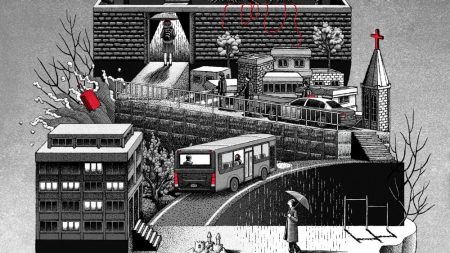The Passing of a Nation’s Founding Father: Sam Nujoma (1929–2023)
A Leader’s Legacy: Sam Nujoma’s Journey to Freedom
The world recently mourned the loss of Sam Nujoma, Namibia’s first democratically elected president and a central figure in the country’s struggle for independence. At the age of 95, Nujoma passed away, leaving behind a legacy that shaped the modern nation of Namibia. His death was announced by President Nangolo Mbumba on national radio and social media, marking the end of an era for a man who dedicated his life to the fight for freedom and equality. Nujoma’s passing on a late Saturday evening, after spending three weeks in the hospital, brought a nation to a standstill, as citizens reflected on the profound impact he had on their lives and country.
Early Life and the Spark of Resistance
Born on May 12, 1929, in the northern part of Namibia, Sam Nujoma was the eldest of 11 children in a humble farming family of the Ovambo people. Growing up in a Namibia under colonial rule, Nujoma’s early life was marked by the struggles of a country in chains. He worked on the family farm and later pursued his education through evening classes, which laid the foundation for his future activism. His involvement in the trade union movement during his younger years ignited a passion for justice and equality, setting him on a path that would define his life. By 1959, Nujoma had already taken a significant step toward leadership, becoming the chairman of a precursor organization to the South West Africa People’s Organization (SWAPO), the liberation movement that would become synonymous with Namibia’s fight for independence.
The Fight for Independence and the Weight of Leadership
For decades, Nujoma led the charge against South Africa’s occupation of Namibia, which had its roots in the aftermath of World War I. Namibia, then known as German South West Africa, had been a German colony since 1884. After the war, South Africa took control of the territory under a League of Nations mandate, and by 1966, the United Nations General Assembly placed Namibia under UN administration—a decision South Africa ignored. Nujoma’s unwavering commitment to freedom led him into exile for nearly 30 years, during which he orchestrated both political and military resistance against the apartheid regime. His leadership was not without controversy, as allegations of persecution, torture, and the use of child soldiers in SWAPO’s camps in Angola cast a shadow over his otherwise noble cause. Yet, his determination never wavered, and in 1989, as the apartheid regime crumbled, Nujoma returned to Namibia, paving the way for the country’s independence in 1990.
A Nation Reborn: Nujoma’s Vision for a Free Namibia
In 1990, Namibia officially gained its independence, and Sam Nujoma became the country’s first democratically elected president. He went on to serve three terms, winning re-election in 1994 and 1999. Under his leadership, Namibia began the long process of healing and rebuilding. Nujoma’s vision for a Namibia where all people enjoyed equal rights and opportunities was at the heart of his presidency. However, the road to achieving this vision was fraught with challenges, particularly the issue of land reform. At the time of independence, much of the land remained in the hands of white farmers, a legacy of colonial rule. Nujoma advocated for expropriation, emphasizing that the land belonged to the Namibian people. While his stance was firm, he also sought to balance the needs of all citizens, ensuring that the process of land redistribution was gradual and fair.
International Alliances and the Path to Stability
Nujoma’s leadership extended beyond Namibia’s borders. His friendship with nations like North Korea and Cuba often raised eyebrows in the West, as did his pragmatic approach to relations with Germany, the former colonial power. Despite these criticisms, Namibia flourished under his guidance, becoming one of Africa’s most stable democracies. Nujoma’s ability to navigate complex international relationships while maintaining domestic stability was a testament to his statesmanship. Even as Western donors occasionally expressed discomfort with Namibia’s alliances, Nujoma remained steadfast in his commitment to charting an independent course for his nation.
Personal Reflections and the Man Behind the Legend
Despite his larger-than-life status, Sam Nujoma remained deeply connected to his roots. He often spoke fondly of his childhood and the values instilled in him by his family. His marriage to Kovambo, which spanned decades, was a source of strength and support throughout his life. Together, they had two sons, and their family became a symbol of resilience and love in the face of adversity. In his later years, Nujoma looked back on his life with pride, knowing that the Namibia he helped build was a place where future generations could thrive. His legacy, while complex, is undeniably profound, and his passing leaves a void that will be deeply felt. Yet, the nation he helped create will continue to honor his memory by striving for the ideals he championed: freedom, equality, and justice for all.









